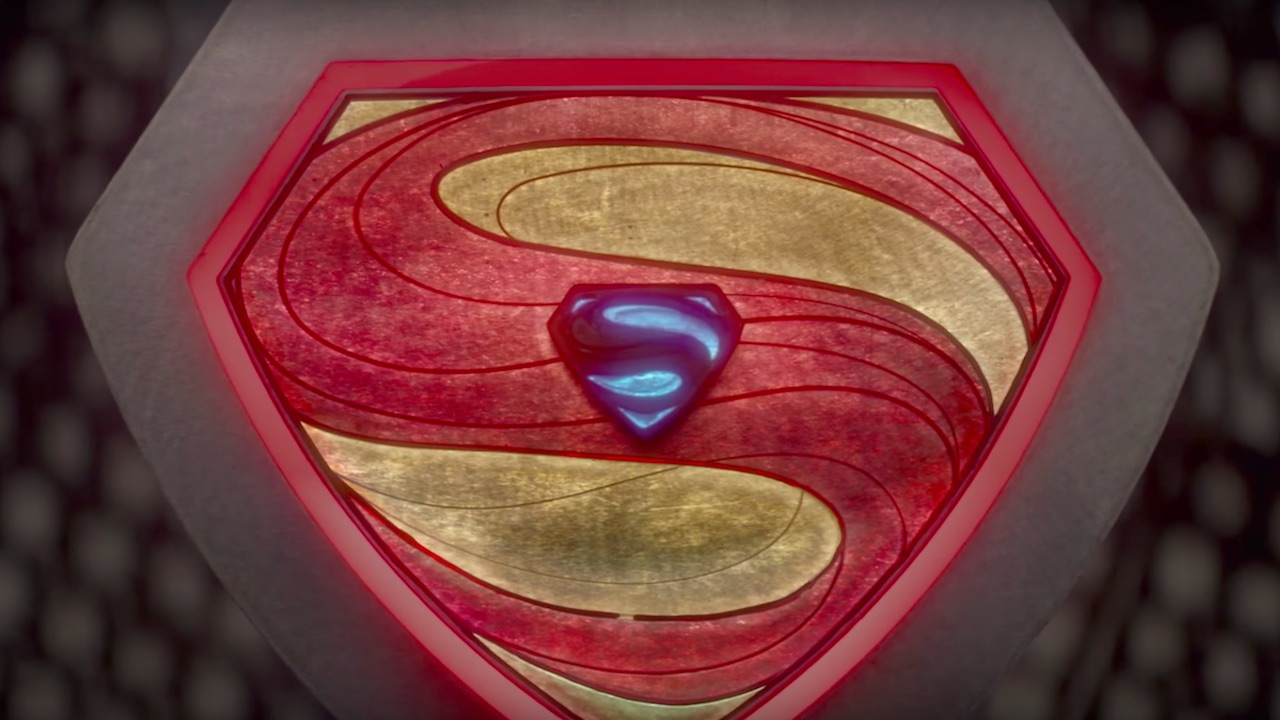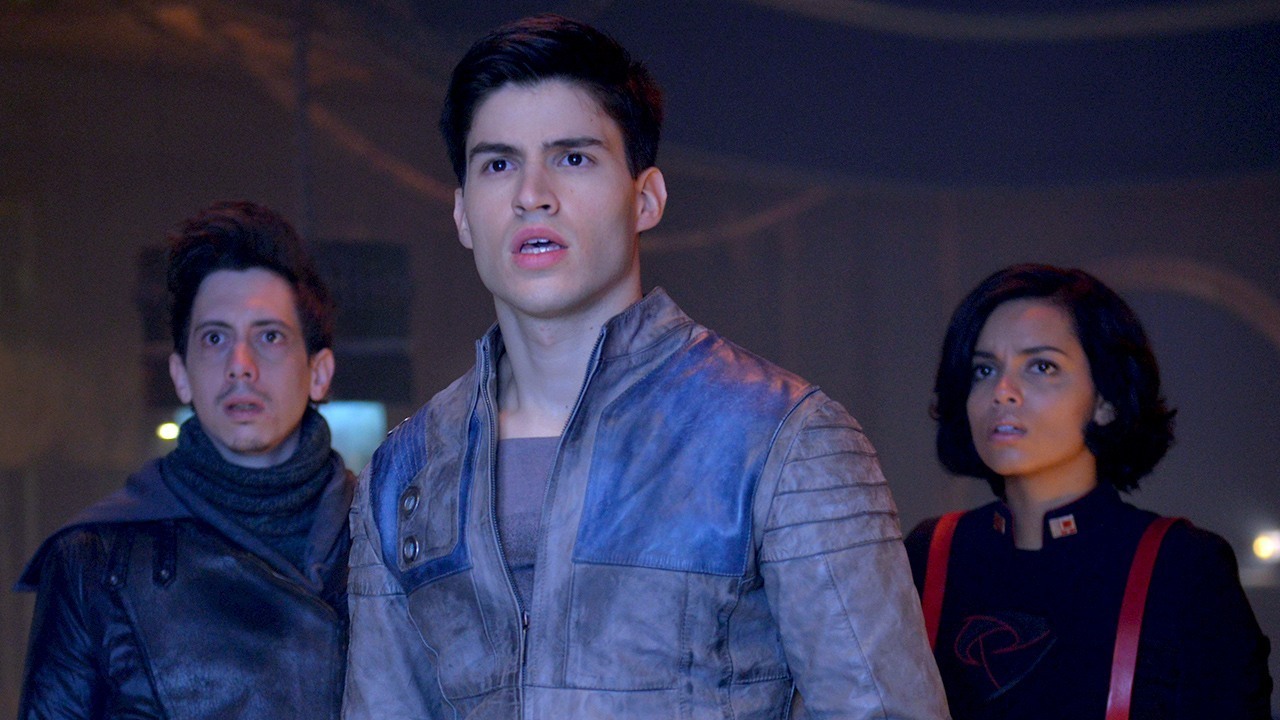
It’s a world on which Superman lived for a mere fraction of his life, before it exploded into space dust. Yet it’s been kept alive by generations of creators, its name alone evoking the same sense of pulpy wonder as Flash Gordon’s Mongo or Luke Skywalker’s Tatooine. Now the planet has been restored to its full glory for fans to visit on a weekly basis – courtesy of Warner Bros and Syfy US’s new series Krypton.
Chronicling the adventures of the twentysomething Seg-El, the Man of Steel’s grandfather (played by Cameron Cuffe), Krypton shines a light on a forgotten period of its titular world’s history, while telling a story that today’s superhero aficionados should find strangely relevant.
“The thing about Krypton,” executive producer Cameron Welsh tells SFX, “is it’s a relatively unexplored part of the DC Universe. Which gives us a lot of freedom in the world-building of it all. The challenge of a show like this is people think of it as a prequel. People think they have a sense of how the story’s gonna end, with the destruction of the planet. What we’ve done is challenge that expectation.”
The show’s Krypton, Welsh explains, is a world that’s tearing itself apart. “It’s becoming divided into classes. There’s an underclass known as the rankless. They’re the lowest class in [capital city] Kandor. Then there’s the guild society – the lawmaker’s guild or the science guild – the upper class. That includes the House of Zod and the House of El. They live in these towers and the rankless live below. There’s a really palpable tension.”
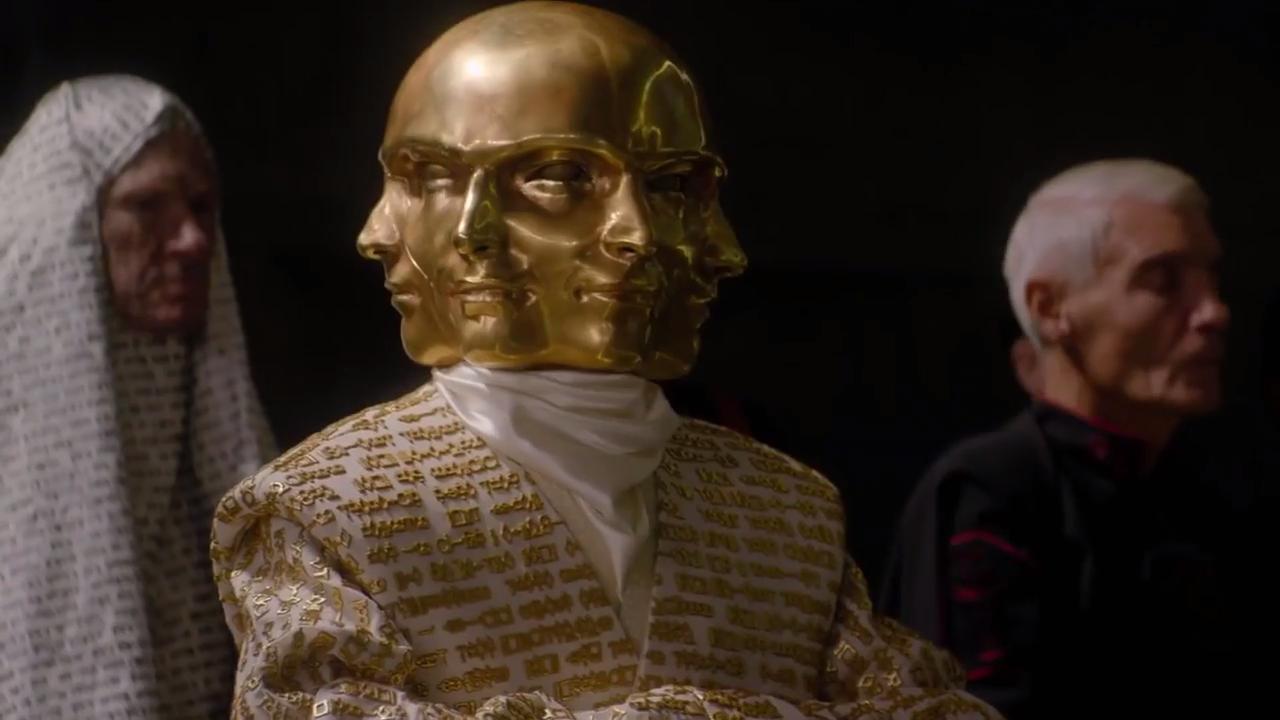
Though Seg-El begins his journey as a member of Krypton’s upper class, his life quickly takes a turn for the worse. “This is not the shiny utopian Krypton,” says executive producer Damian Kindler, who developed the show with Man Of Steel writer-producer David Goyer.
“The rankless is a much more hard-scrabble existence. The rules and regs of that society dictate very harsh laws to keep everybody alive on a harsh planet. So when we meet Seg-El, at first he’s part of the venerable House of El, but they fall from grace and are stripped of their rank. He comes of age as a rankless. So we’re starting in a place that a lot of us can identify with, which is a place of starting with nothing."
"Seg-el isn’t a shiny boy scout. He’s rough around the edges. He’s got to fight to restore his family’ name."
David Goyer, Executive Producer
"We don’t start with him as this shiny boy scout. He’s rough around the edges. He’s got to use his brain and his fists to get by. And he’s got to fight his way back to honour, and restore his family’s name – and save his planet. I think there’s gonna be a lot there for audiences to grab onto.”
Get sneak previews, exclusive competitions and details of special events each month!
“Seg-El,” adds Welsh, “is really disconnected from the House of El and everything it stands for. So part of the journey of the show is him learning what that means. What it is to be an El and the responsibility that is associated with that and the power of their symbol. Seg’s not a hero, and he’s very quickly thrust into a situation where he needs to become that. It’s a hero’s journey, and he has to take all those steps that we know in a hero’s journey."

“He’s really tasked with the job of ushering in the golden age of Krypton that everybody’s more familiar with. The Jor-El generation. Seg’s job is to almost lead a revolution that will usher in that golden age. Because it’s from that golden age that the bloodline that eventually becomes Superman is born. When we start the show, the political landscape of Krypton, it’s more like totalitarianism."
"It’s a fundamentalist theocracy. If Kal-El’s rocket ship left from that world, we would have very different Superman to the one we have today. So it’s really about ushering in that golden age to give us the Superman that we need."
Complicating Seg’s hero’s journey, however, is a plot to erase Superman from history, by preventing him from being born.
“One of the challenges a lot of prequels face,” says Welsh, “is the sense that we know how this story ends. ‘Krypton is gonna blow up and that’s the end – what do I invest in that?’ What we’re doing with our show is, there’s a conspiracy where some villains from present- day Earth have travelled back in time to the Krypton of 200 years ago to try to prevent Superman’s birth. So very quickly the show is no longer about the events of the past.
“It makes the show much less about things that happened on this planet before Superman was born, and much more about the here and now, about the greatest hero in the universe. Will he even be born? It becomes a show where anything can happen. At the forefront of that are the villains, who are behind this conspiracy. It’s a very cool way to get into the show, and it just kind of bends people’s expectations for what the series will be.”
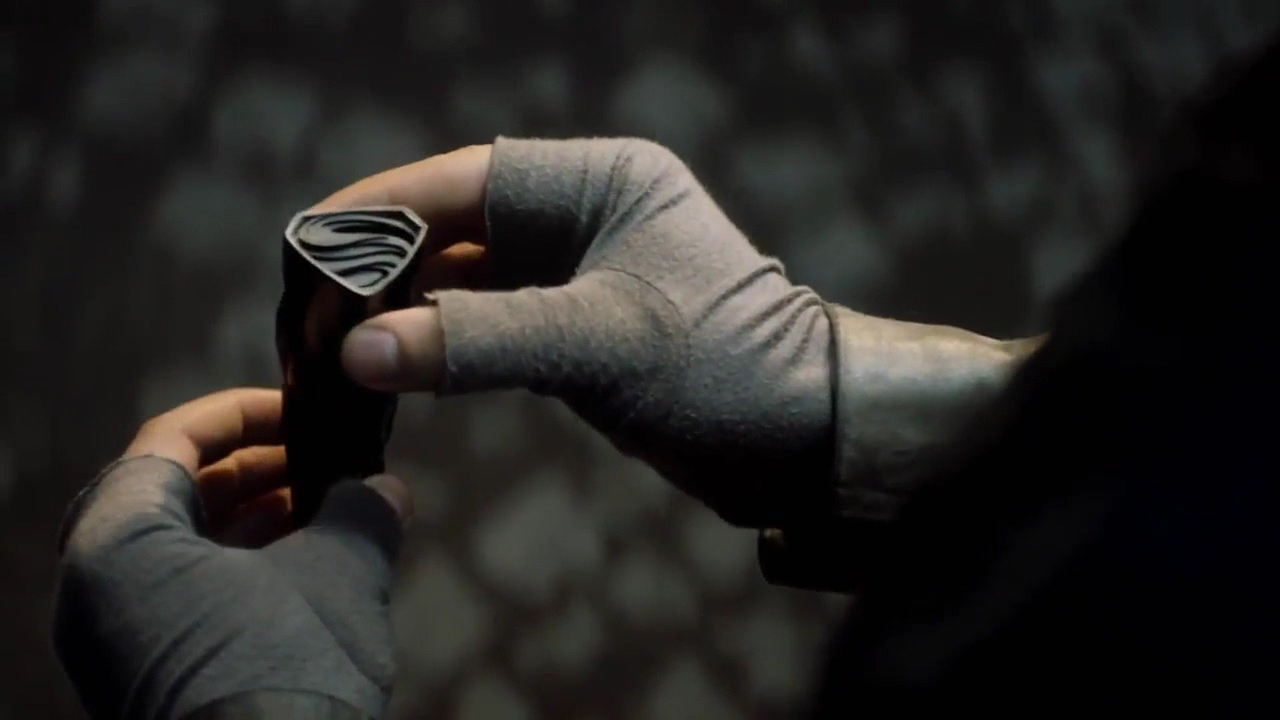
Aiding Seg-El will be several time-travelling characters long familiar to fans of the DC universe, including Adam Strange (Shaun Sipos) and Hawkwoman. Kindler tells us that setting the show 200 years in the past has proven to be both advantageous and challenging.
“There’s been a lot of canon [stories about Krypton], but we do also have a lot of freedom to world-build by going back that far, before Jor-El. That’s wonderful. But this is not an IP that you can suddenly turn into a Metallica soundtrack death/blood sport kind of thing. Because that’s not what the ‘S’ means. It’s about hope and inspiration and truth and justice and good stuff. So you walk this line.
“Look, we’ve all grown up with this IP. We’re ready for it to take a nice, big, deep grounded leap forward. We’re living in a post-Frank Miller/Alan Moore world where we can’t make it broad anymore. But we have to also be respectful to the lineage. It’s the challenge of ‘Let’s world-build. Let’s [make] something deeper and cooler, but let’s make sure that it really is honest to the feeling that we want to evoke.’”
Super trooper
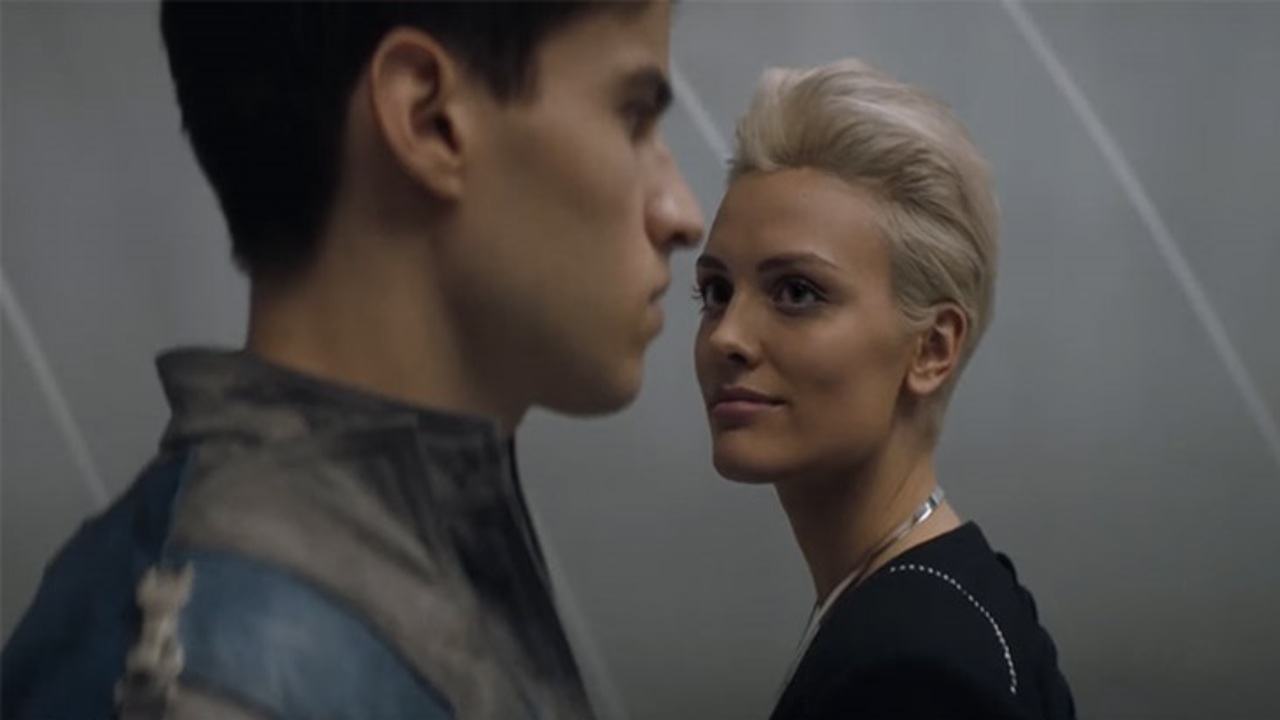
But Krypton’s biggest challenge, according to Kindler, is one faced by generations of genre TV creators, from the early days of Star Trek and Doctor Who...
“You’re setting the show on an alien world that a lot of people have a lot of opinions about. So everything has to be either built or is a visual effect or both. That means a lot of construction, a lot of CGI, a lot of conceptual work. If you get lazy, the world-building falls apart. So just from a practical standpoint that’s a big challenge. But it’s also an awesome thing. Because you honestly feel like you’re playing in the most awesome sandbox in the world.”
Ultimately, Kindler’s hope is that Krypton evokes the same sense of wonder he experienced when he first encountered Superman’s birth planet during the hero’s debut on the big screen.
“As a kid I went to see the 1978 Superman. I wanted to believe a man can fly. We will never let go of that tone. It will never get so dark with navel- gazing that we forget it’s about wonder and awe and humour and friendship and about the choice to do good. That’s the thing that’s amazing about Superman, and about his family. They could have given into corruption or self-interest or not giving a damn. But they actually chose to fight and struggle for a better tomorrow. They believed in hope.”
This feature originally appeared in GamesRadar+'s sister magazine SFX, issue 298. Pick up a copy now or subscribe so you never miss an issue.

SFX Magazine is the world's number one sci-fi, fantasy, and horror magazine published by Future PLC. Established in 1995, SFX Magazine prides itself on writing for its fans, welcoming geeks, collectors, and aficionados into its readership for over 25 years. Covering films, TV shows, books, comics, games, merch, and more, SFX Magazine is published every month. If you love it, chances are we do too and you'll find it in SFX.
